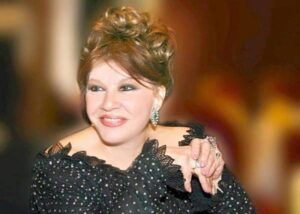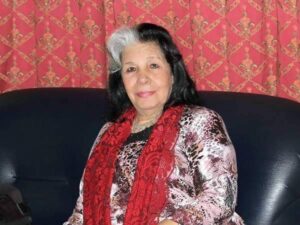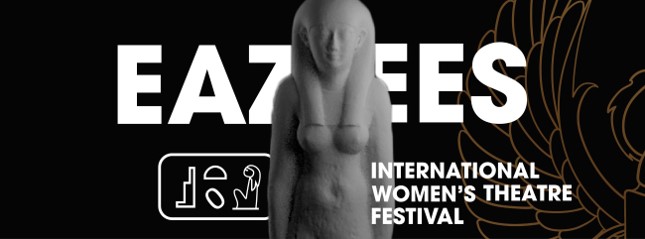Egyptian actress and director Abeer Loutfy is the brain behind the Eazees festival celebrating women’s achievements in the performing arts.
Let’s get one thing clear, Loutfy insists that the pronunciation is as it is spelt, but with emphasis on the second part.
Not ‘Isis’, which rhymes with the English ‘ices’.
“Google ‘Isis’ and you will find the terrorist group,” she said. “And they were enemies of women and culture — far cry from the ancient Egyptian goddess and the message of the festival.
“I just hope the ‘Eazees’ spelling catches on,” Loutfy said.
Loutfy is the president and founder of the Eazees International Women’s Theatre Festival, slated for 15-21 September in Cairo.
“Because I am a woman and working as an actress on stage and it struck me that there are no festivals about actresses either here in Egypt or Arab countries,” Loutfy told the Egyptian Mail, the weekly edition of The Gazette.
“I believe Egyptian theatre should have its own festival in plays with focus on women’s issues, and not just a local. And this the first international festival of its kind,” she added.
“To make the festival peculiarly Egyptian, Eazees, the ancient moon goddess, represents the Egyptian identity.”
According to the myth, Eazees collected the body parts of her murdered husband Osiris to revive him and give birth to Horus, who avenged his father’s killer, Seth, the God of evil.
“Theatre is like Eazees. It collects our severed parts and gives them life, and fertilises them with values of justice, goodness and aesthetics,” Loutfy said.

Writer Rasha Abdel Moneim, who is festival manager, told this newspaper that the event will celebrate iconic Egyptian and Arab thespians: Shwikar, Egyptian comedienne and actress who played along with her partner, Fouad el-Mohandes and Lebanese actress Nidal al-Ashkar, who founded the Al-Madina Theatre in 1994 as a free platform to the Arab and Western world.
Other theatrical worthies include Nagat Ali, a professor of acting in Egypt and the Arab world, Egyptian composer Iman Salah Eddin, who produced songs and soundtracks for films, plays and television series.
The festival devotes space to Hoda Wasfi, professor of French literature and the founding director of the Hanager Centre for the Arts, which since the 1990s has been a hub for the Egyptian independent theatre movement.
Effat Yehia, the founder of the Caravan Troupe, which staged plays dealing with women’s issues, will also be honoured.

This edition of the festival is dedicated to playwright Fathia el-Assal and her works ‘She and the Impossible’, ‘Women’s Prison’, ‘Women without Masks’ and ‘Henna Night’, Abdel Moneim said.
“The festival will also include theatre shows from England, Germany, Holland, Japan, Jordan, Morocco, Romania, Russia and Tunisia,” Abdel Moneim said, adding that the venues will be the Cairo Opera House’s Open Air theatre, Hanager Theatre, AUC and Rawabet.
Abeer Ali, who is also a festival manager, told this newspaper that in addition to the live performances there are seminars on the woman image in contemporary theatre, plus an exhibition of caricature portraits, films about the individuals showcased at the event and workshops.
According to the festival website, best director, actress, actor, and best scripts of the participating shows will be awarded with Eazees statuettes and certificates.
The festival is under the patronage of the Ministry of Culture in cooperation with the National Council for Women, Ministry of Tourism and Antiquities and foreign cultural centres.
“Minister of Culture, Mrs Inas Abdel Dayem, is very excited by the festival as she is the first woman to serve in this position since its creation,” Loutfy said.






Discussion about this post